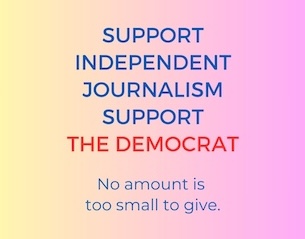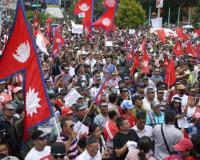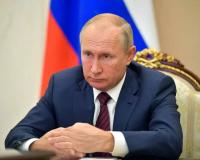- World
- UPDATING LIVE: UN Security Council to meet on the situation in the Middle East
UPDATING LIVE: UN Security Council to meet on the situation in the Middle East
The UN Security Council is set to meet this morning at 11 AM (New York time) on the situation in the Middle East, amid rising tensions in the occupied West Bank and while the relentless fighting in the Gaza Strip continues to exact a terrible toll on civilians.
Follow this page and @UN_News_Centre on X, formerly Twitter, for updates.
11:08 AM
Khaled Khiari, Assistant Secretary-General for the Middle East at UN DPPA, informed Council members that the situation in the Middle East is alarming and continues to deteriorate, including “several interconnected theatres conflict”.
He noted “intense” Israeli ground operations and fighting between Israeli forces and Hamas and other groups in most areas of Gaza, as Hamas and other Palestinian factions continue to fire rockets from Gaza into Israel.
“Civilians from both sides, particularly in Gaza strip currently, continue to bear the brunt of this conflict,” he said.
Reiterating the Secretary-General’s call for an immediate humanitarian ceasefire in Gaza, Mr. Khiari warned that the risk of regional spillover of this conflict with potential devastating consequences for the entire region remains high given also a multitude of actors involved.
He informed Council members of “continued daily exchanges” of fire across the Blue Line between Lebanon and Israel, posing a “grave risk” to regional stability.
“Increasingly, there have been strikes on civilian areas, with civilian casualties, on both sides of the Blue Line, in addition to a rising number of fatalities among combatants,” he added.
Mr. Khiari also noted attacks on US bases in Iraq and Syria, with the US conducting some airstrikes against groups suspected of these actions in Iraq and Syria. He also cited reports of Israeli air strikes inside Syria, as well as tensions in the Red Sea.
11:05 AM
José Javier De La Gasca, Ambassador and Permanent Representative of Ecuador, which holds the Presidency of the Security Council for December, called the meeting to order.
Israel has been invited to the meeting, as has the been the Observer State of Palestine.
Khaled Khiari, Assistant Secretary-General for the Middle East, Asia and the Pacific, Department of Political and Peacebuilding Affairs; Marwan Muasher, Vice President for studies at Carnegie Endowment for International Peace and former Deputy Prime Minister of Jordan; and Itay Epshtain, Norwegian Refugee Council Special Advisor and Senior Humanitarian Law and Policy Consultant will brief the meeting.
10:35 AM
The United Arab Emirates (UAE), a non-permanent member called for the emergency meeting, and a senior UN official from the Department of Political and Peacebuilding Affairs (DPPA) is expected to brief ambassadors.
The meeting follows a resolution adopted last week by the Security Council calling for a scale-up in aid deliveries to civilians in the Gaza Strip. The resolution passed with 13 votes in favour, and the US and Russia abstaining.
Tensions in occupied West Bank
Earlier this month, Tor Wennesland, the UN Special Envoy for the Middle East Peace Process, voiced “deep concerns” over escalating tensions in the occupied West Bank, including East Jerusalem.
Briefing the Security Council on 19 December, he noted “intensified armed exchanges” between Palestinians and Israeli security forces, predominantly in the context of Israeli operations, which led to exceedingly high levels of fatalities and arrests.
Mr. Wennesland also expressed alarm at lethal attacks carried out by Israeli settlers against Palestinians and by Palestinians against Israelis in the occupied West Bank and Israel.
“All perpetrators of violence must be held accountable and swiftly brought to justice,” he stressed.
Humanitarian situation in Gaza
Meanwhile, the humanitarian situation in the enclave remains dire.
Earlier today, the UN Office for the Coordination of Humanitarian Affairs (OCHA) cited reports from Gazan health authorities that half of all the pregnant women seeking safety in shelters suffer from thirst, malnutrition and a lack of healthcare. There is a lack of vaccinations for newborns and one in every two displaced children faces dehydration, malnutrition and disease.
Some 1.9 million Gazans, or 85 per cent of the enclave’s population, have been internally displaced since the start of Israel’s retaliation following Hamas’ deadly terror attacks in southern Israel on 7 October.











